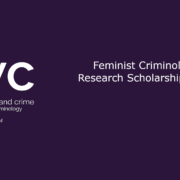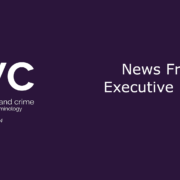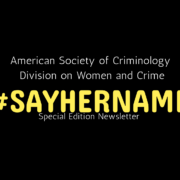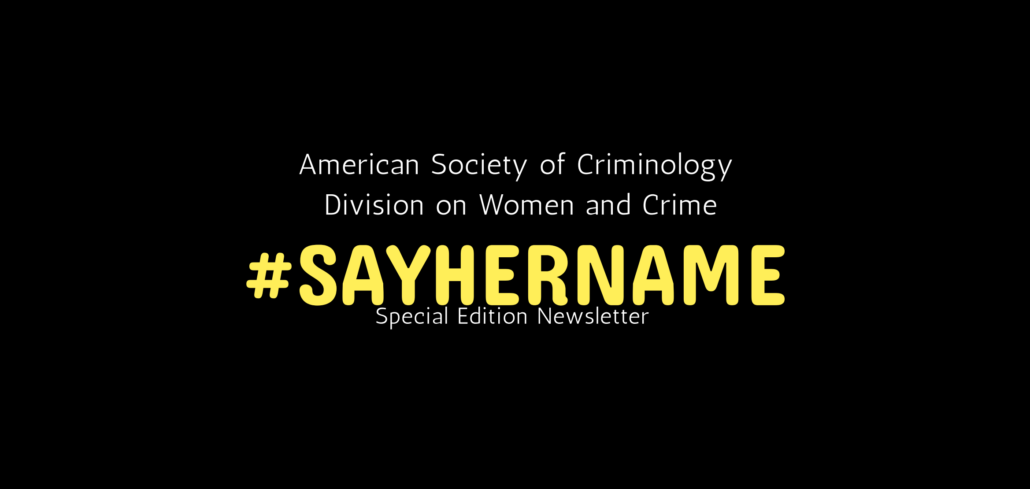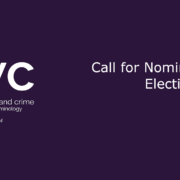Feminist Criminology Graduate Research Scholarship Announcement
The Feminist Criminology Graduate Research Scholarship is designed to recognize an exceptional graduate student in the field of gender and crime. The scholarship is funded by the royalties from Feminist Criminology, an innovative journal that is dedicated to research related to women, girls, and crime within the context of a feminist critique of criminology. Published five times per year by SAGE Publications as the official journal of the Division on Women and Crime (DWC) of the American Society of Criminology, this international publication focuses on research and theory that highlights the gendered nature of crime.
The DWC will award one graduate student annually a one-time scholarship in the amount of US $5,000 to support a project involving original research. One or more $500 honorable mentions may also be awarded. The student must be the leader or principal investigator on the project.
Budget items that will be supported include, but are not limited to, data collection, data purchases, hardware/software purchases, travel (e.g., to archives or for other data collection purposes, to professional development workshops or conferences, etc.), bibliographical materials, office supplies, and/or salary support/research assistance salary. No indirect costs, please.
The award will be given based on the following criteria:
- originality of the proposed project
- potential of the project to inform gender and crime research, theory, or practice
- feasibility of the proposed project, including the budget and timeline for completion
Am I Eligible to Apply?
In order to be eligible to apply, a graduate student must be:
- currently enrolled (full or part time) in an accredited masters or doctoral program (this includes law school),
- in good academic standing,
- leader or principal investigator on the project,
- engaged in a project on a topic relevant to gender and crime
- if not already a student member of the Division on Women and Crime (DWC), it is expected that the recipient will join the Division upon receipt of the award. (In order to join the DWC, the recipient needs to be a member of the ASC).
How Can I Apply?
To apply, please submit the following materials in English as one PDF document no later than May 1, 2021 to: Feminist Criminology/Siegel Awards Committee at Femcrimasc@gmail.com
- description of proposed project (with a cover page), including the following sections:
- purpose of project (e.g., statement of problem/issue),
- background (e.g., literature review, need for project),
- goals/objectives (e.g., what will be accomplished, potential limitations of project),
- implementation plan, including methodology if research focused, and
- deliverables (e.g., dissertation, presentation, article, etc. which may be in any language),
- proposed budget in USD, justification for budget items, and project timeline,
- current curriculum vitae,
- transcript from current institution or other official documentation of academic standing if outside of the USA (need not be in English)
- letter of nomination from at least one permanent, full-time faculty member at the student’s current institution.
Application materials should appear in the following order in the PDF document:
- proposal (description and budget)
- CV
- Transcript
- Letter
Please title your combined document “FC_Lastname_Firstname_Application.pdf”.
Items #1 – #2 must total no more than ten (10) double-spaced pages, not including cover page and references.
Winners will be notified in June 2021, and will be expected to submit a one-page annual activity statement in English, no later than November 1st each year until the project is completed.
Any presentations, papers, or printed materials that result from this award must include the following text: “This project was supported by the Feminist Criminology Graduate Research Scholarship.”
Clarification of Differences in Criteria for the Siegel Fellowship for the Study of Gender and Crime and the Feminist Criminology Graduate Research Scholarship Awards:
Scholars may apply for both awards, but will not be able to win both. Please submit separate applications and note the criteria for each award carefully. The Siegel Graduate Fellowship accommodates research along with program or service development, implementation, and/or evaluation, or advocacy, whereas the Feminist Criminology Graduate Research Scholarship accommodates research exclusively. The Siegel Graduate Fellowship is only for US applicants, whereas the Feminist Criminology Graduate Research Scholarship is for applicants based within and outside the USA. The Siegel Fellowship allows for US-based as well as cross-national research with the United States included in a comparative context. The Feminist Criminology Graduate Research Scholarship accommodates all forms of international research as well as US-based research.

